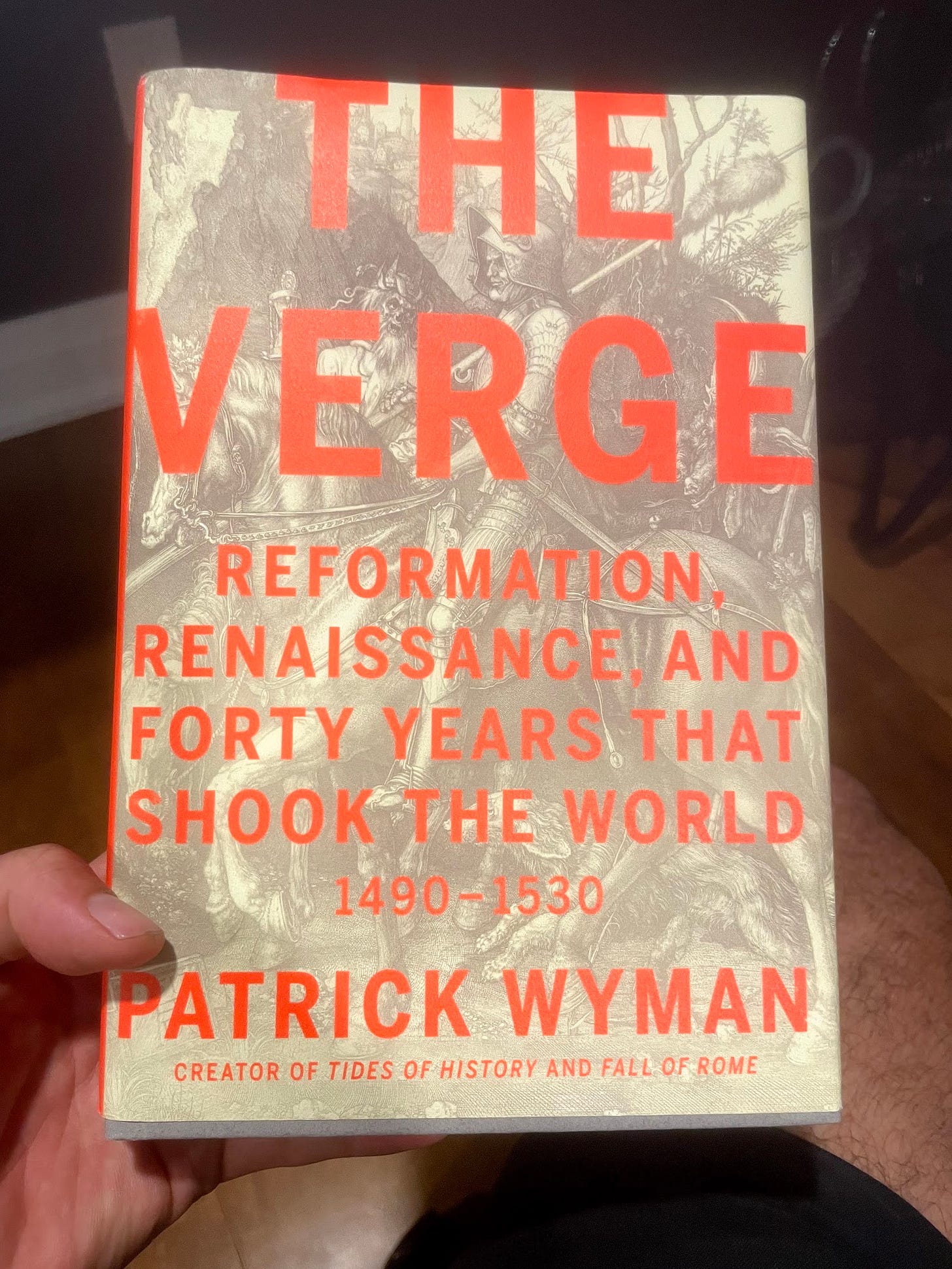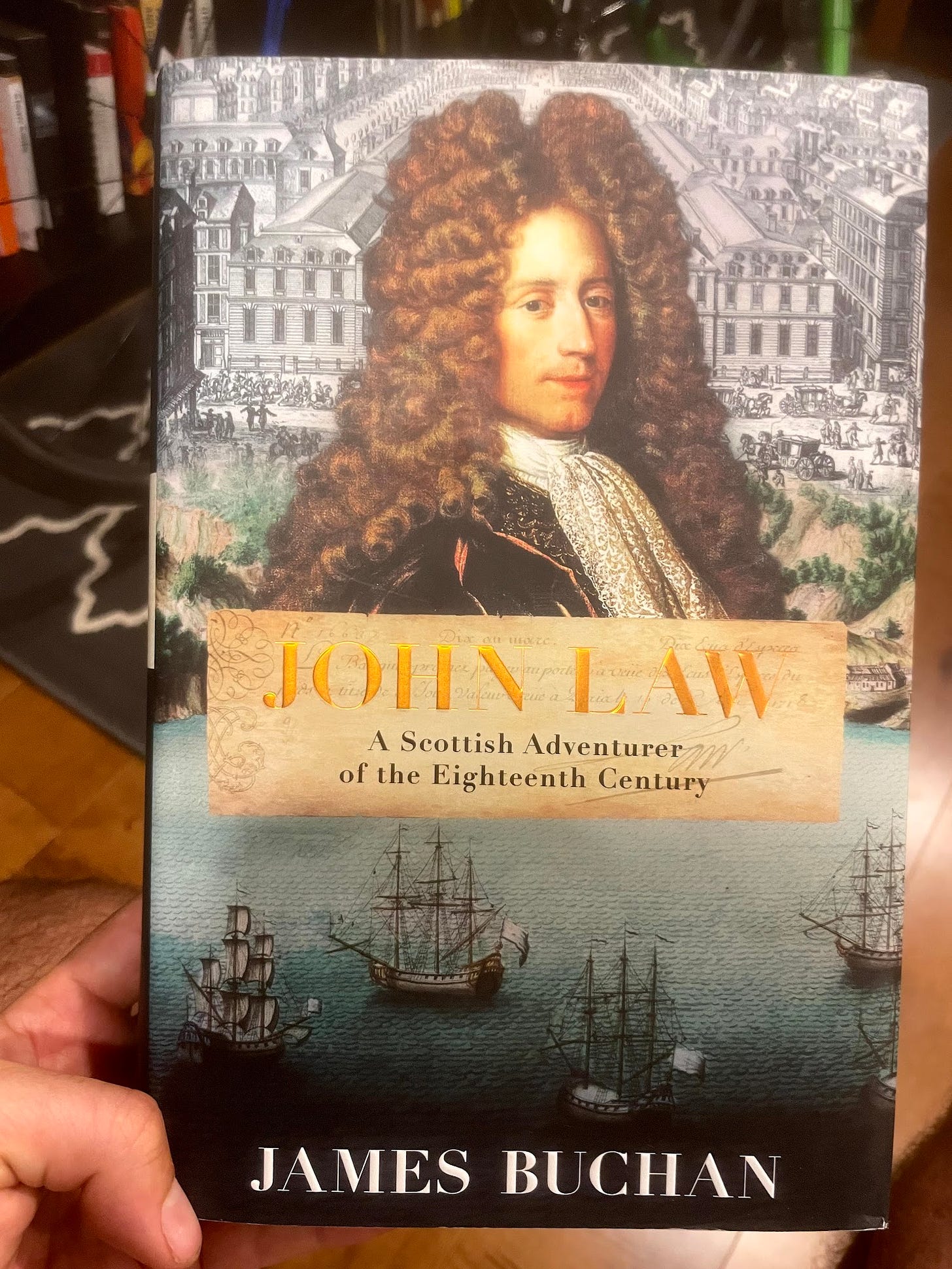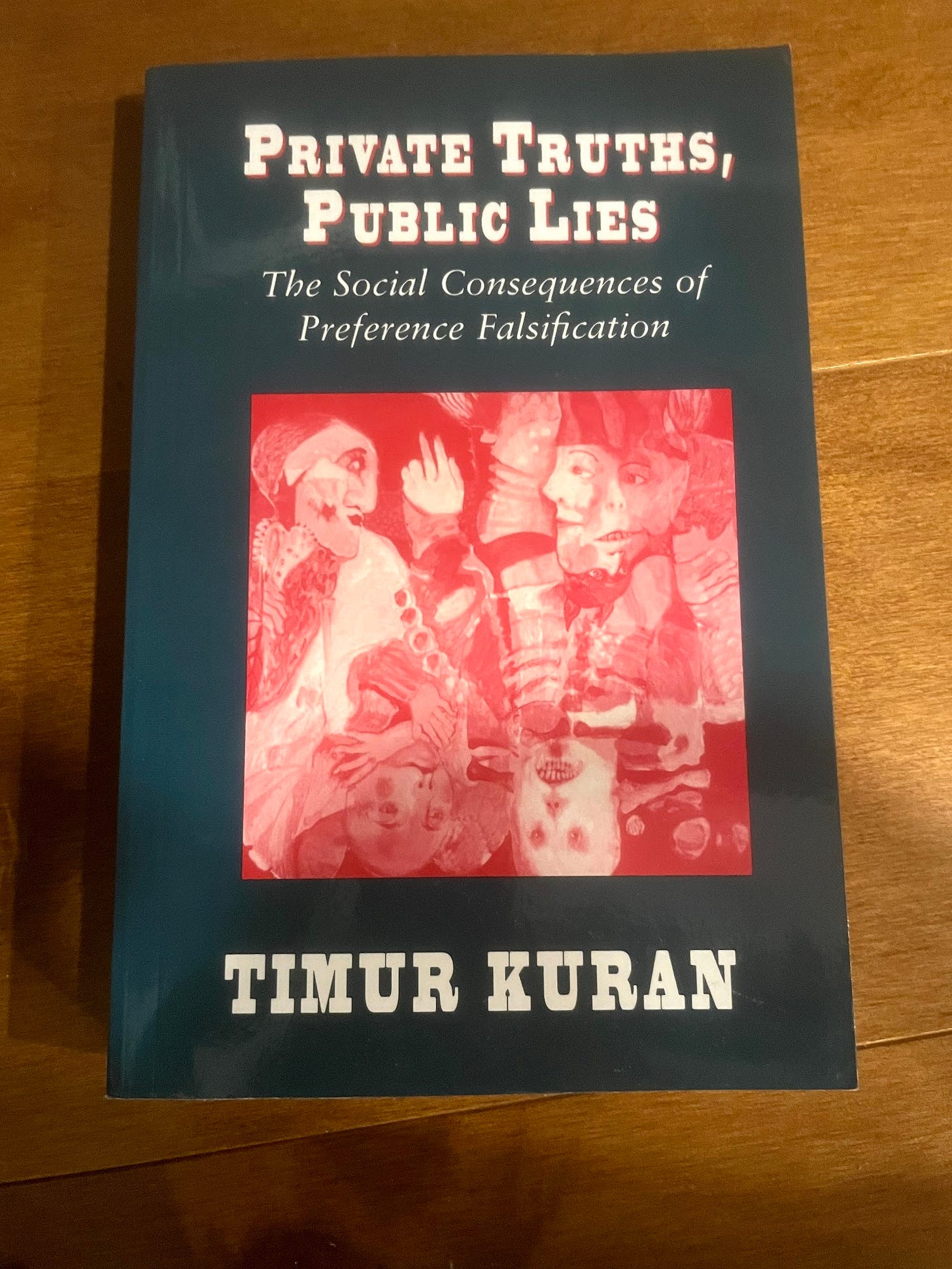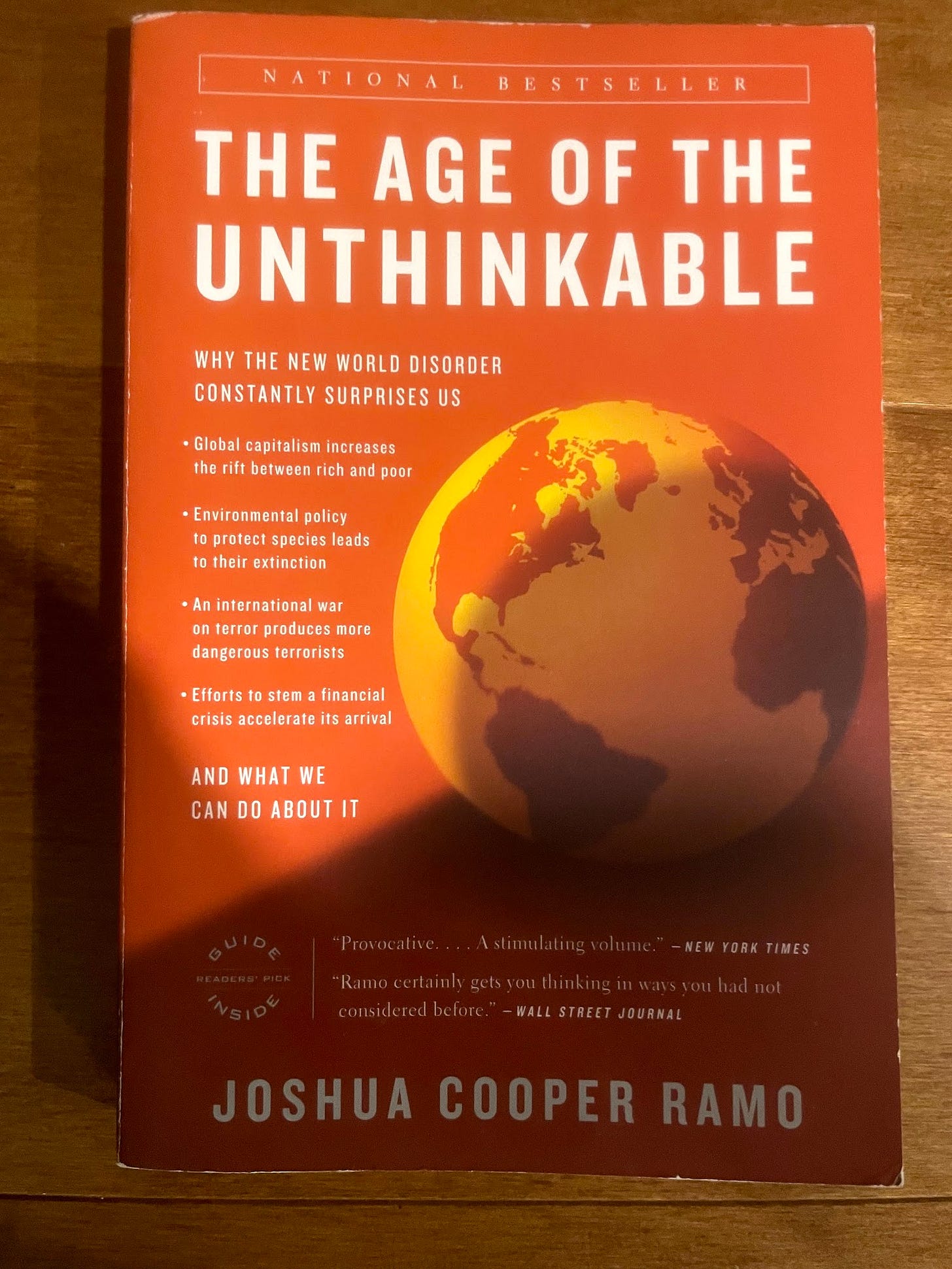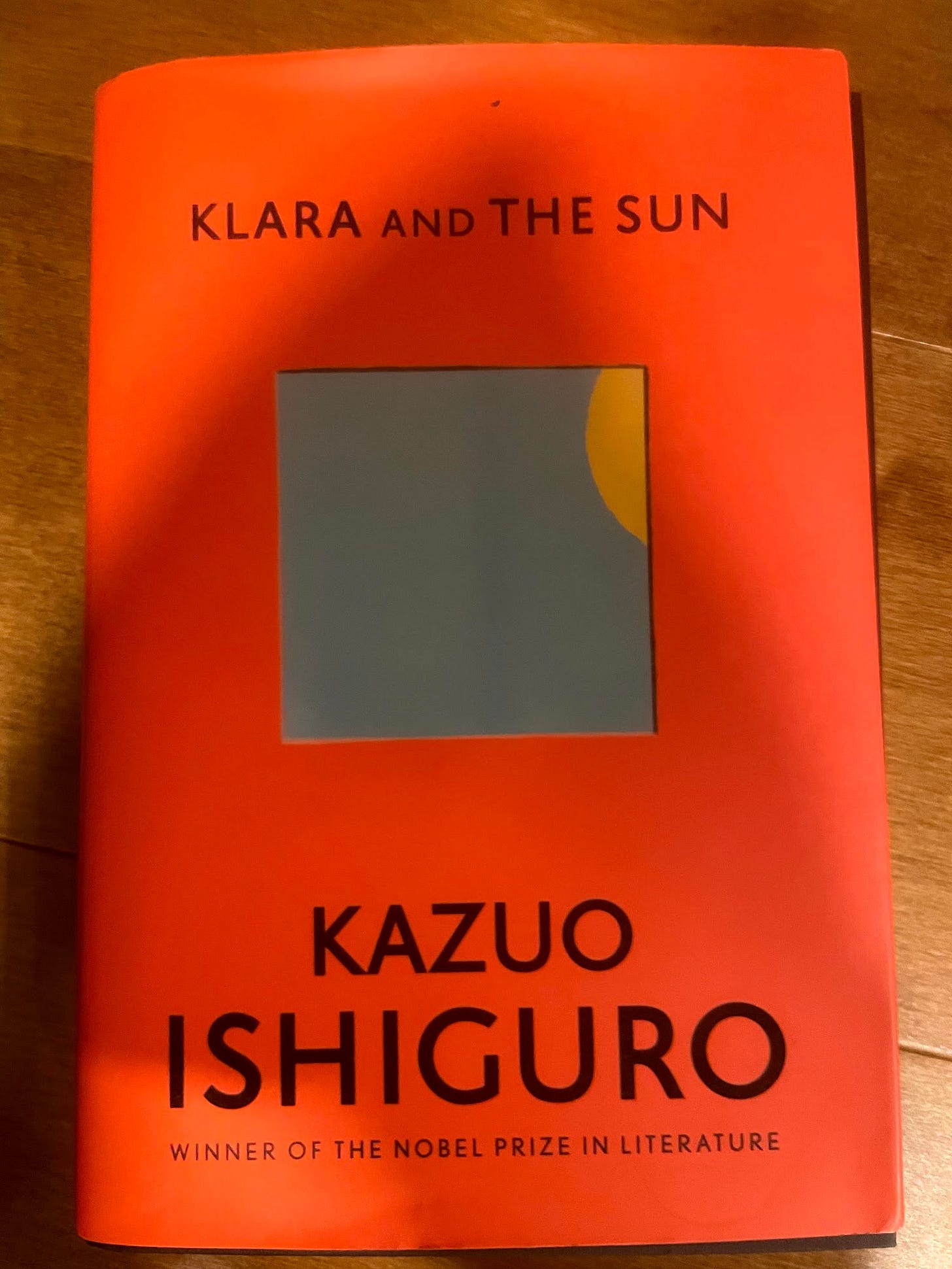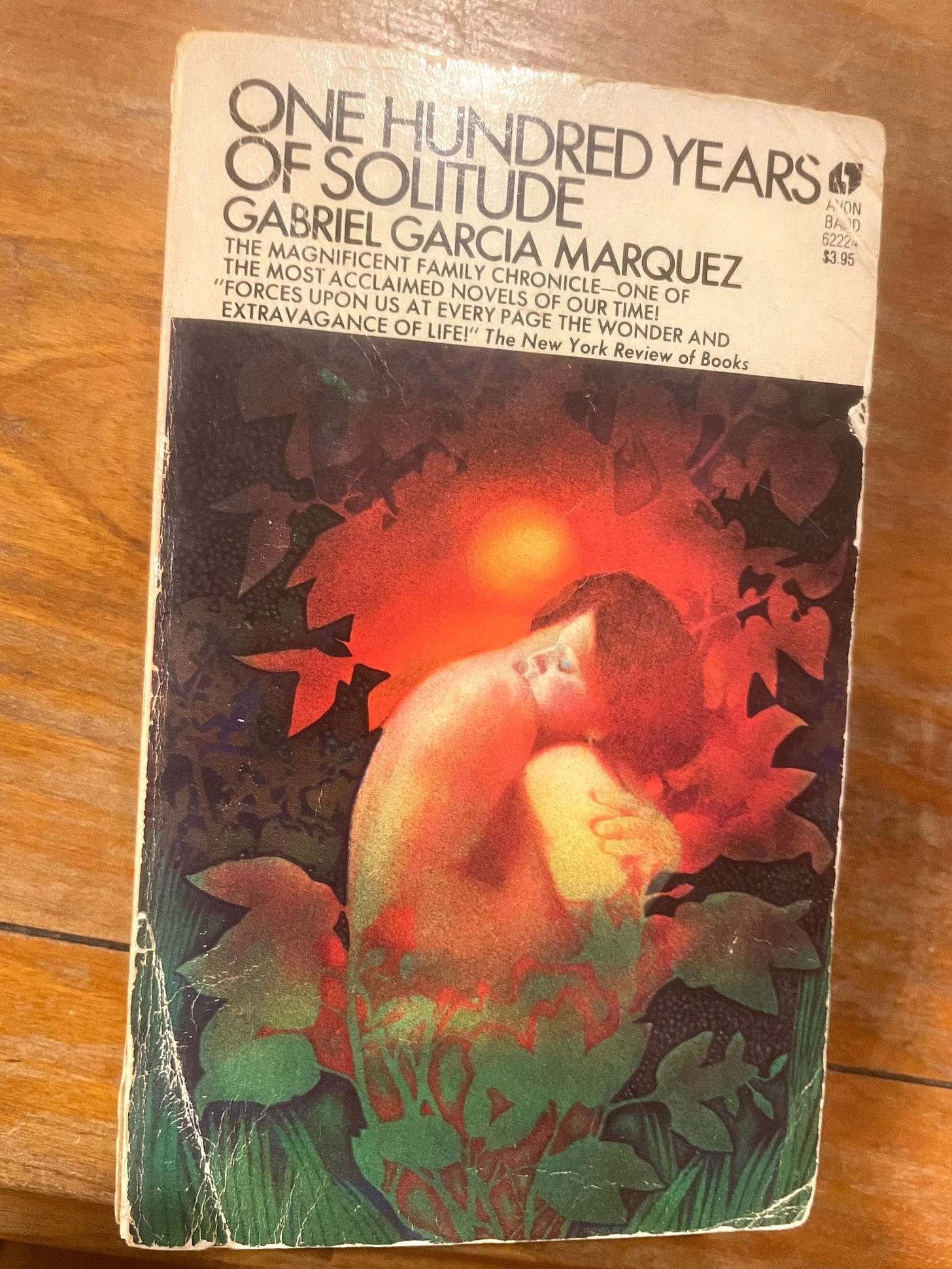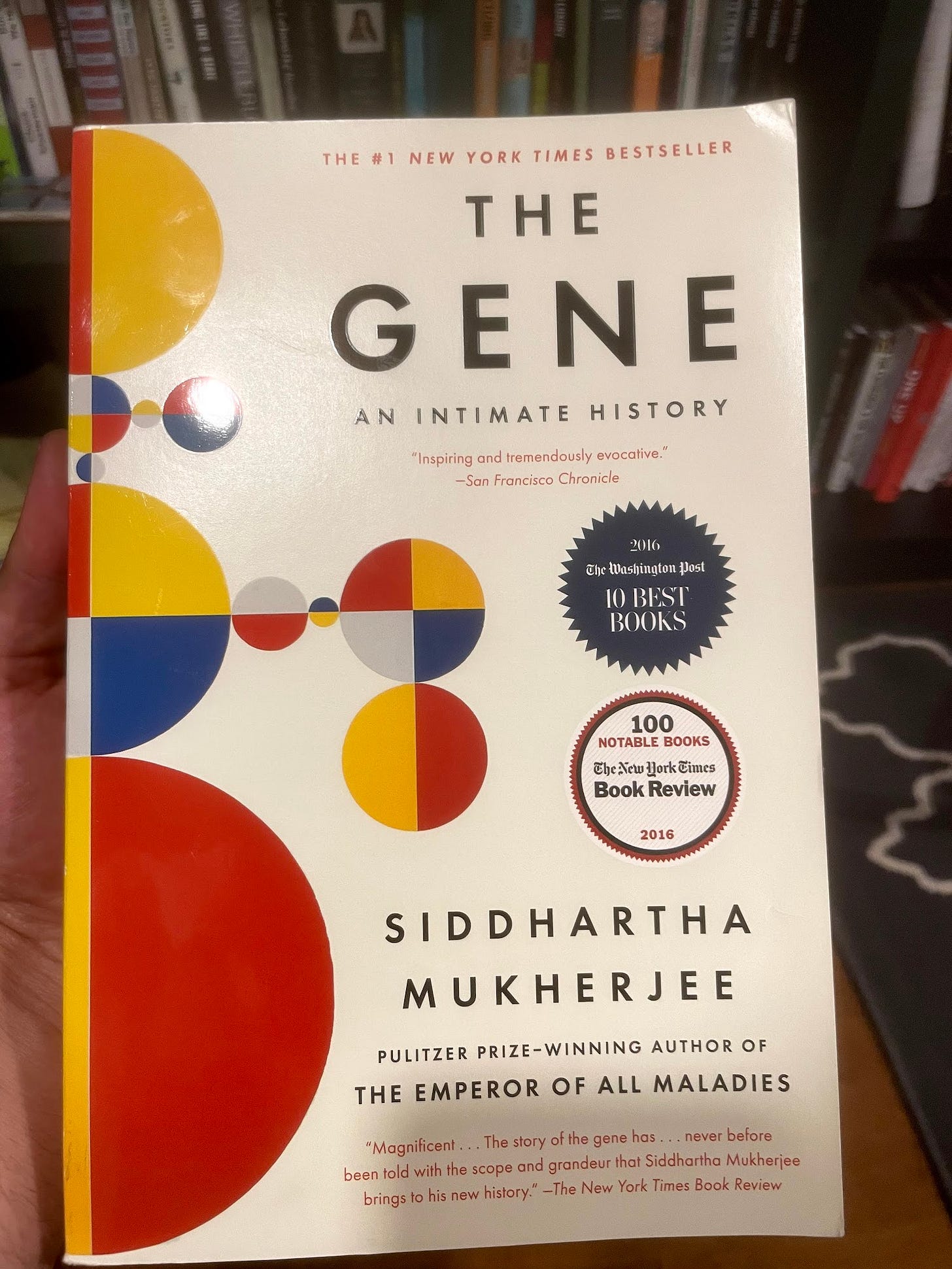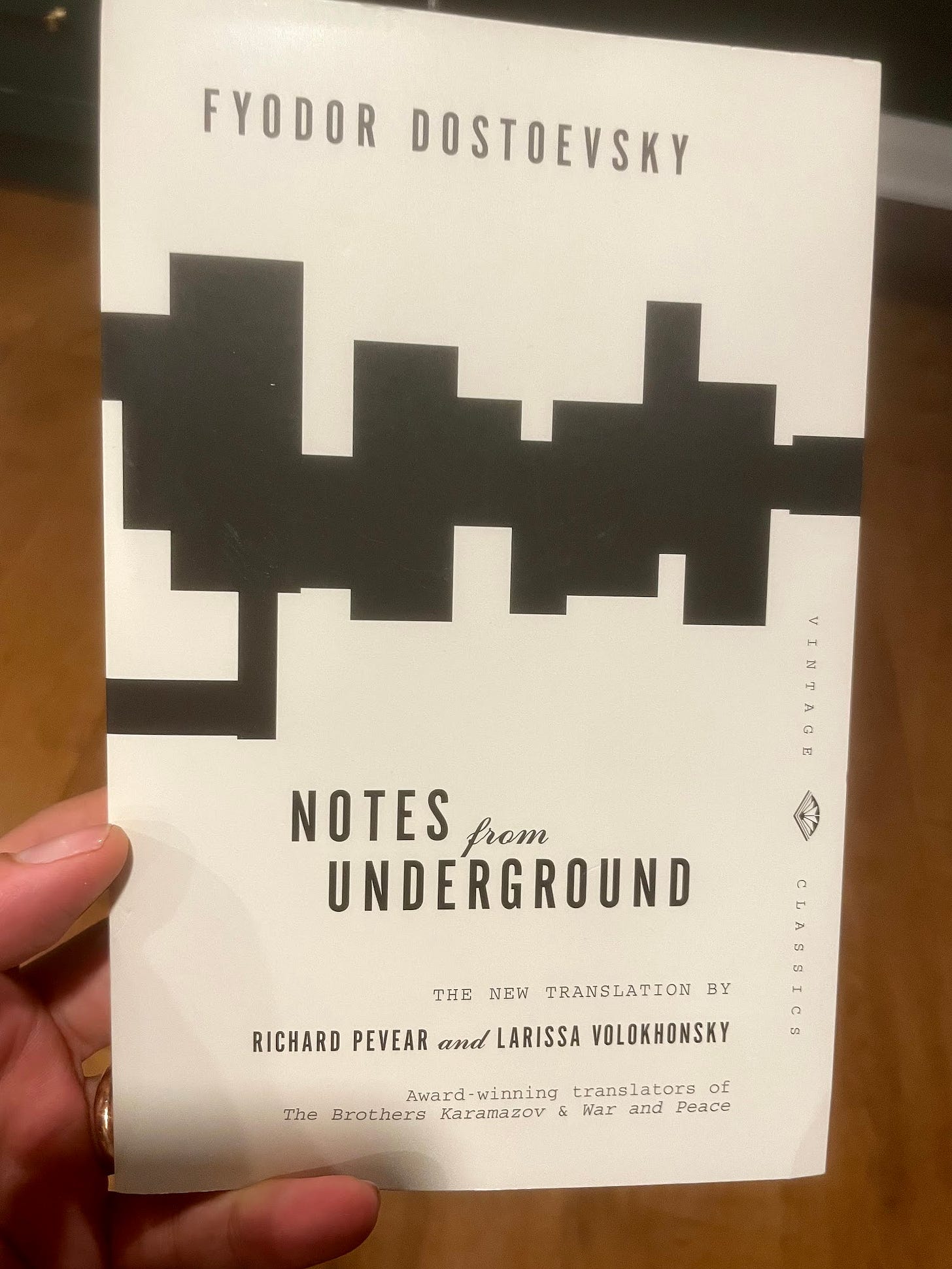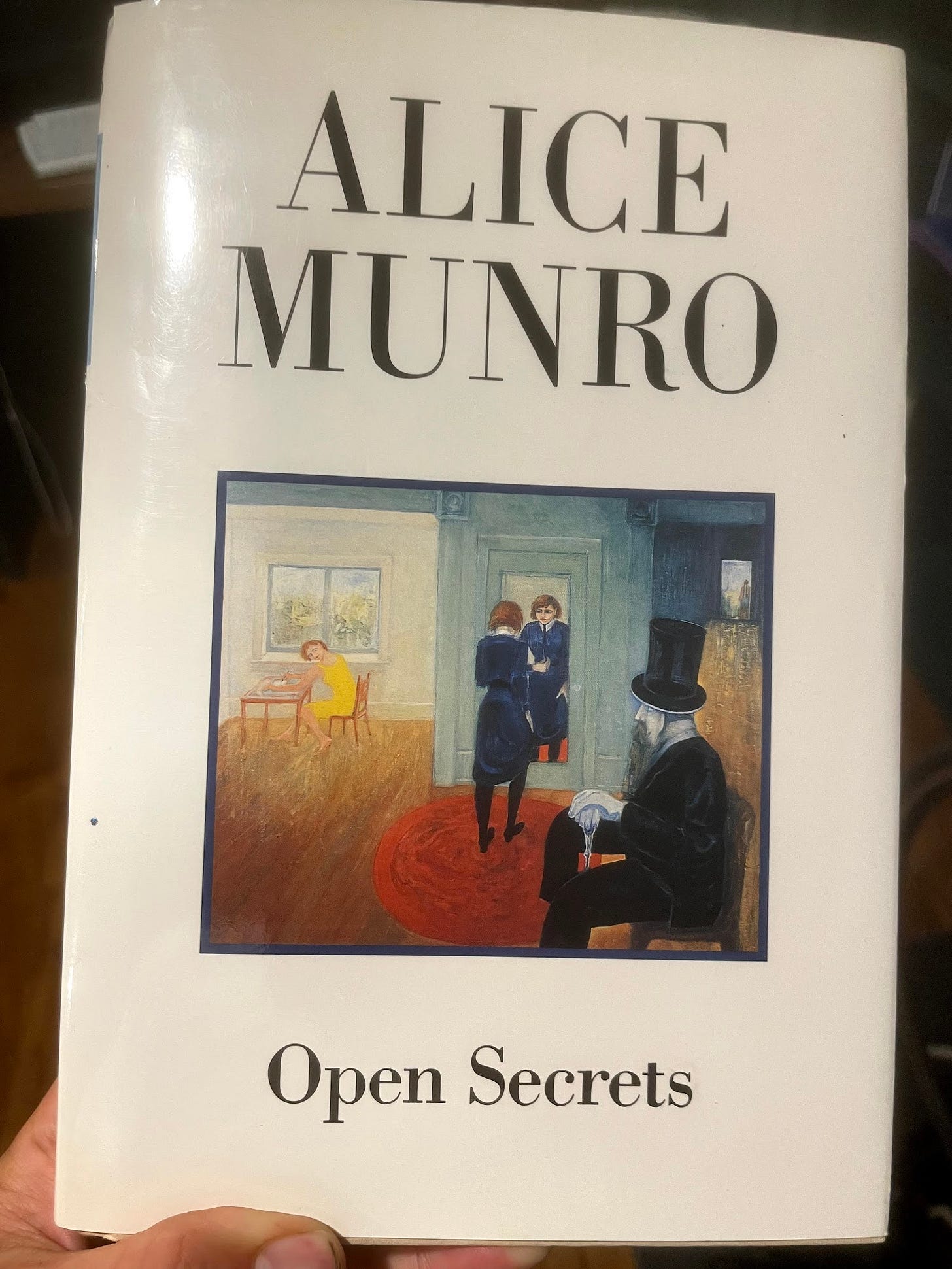Reminder: I’m hosting an Interintellect Salon this coming Wednesday! It’s all about Information: we’ll talk about some Claude Shannon, some Marshall McLuhan, and the ideas of Information as Capital and Information as Life. I’d love to see many of you there. See below.
Hello everyone!
This week, I’m back with another round of ten books to recommend. I did one of these the first time a few months ago, and I got a lot of happy feedback (and new book suggestions!) from all of you, so thank you very much for that. It also seems like it had some real impact. See this supporting evidence, kindly grabbed by David Perell:
However, this time around I want to do something a little different: I’m going to recommend ten books from my bookshelf that I haven’t read yet, but want to. Here goes:
1: The Verge: Reformation, Renaissance, and 40 Years that Shook the World, by Patrick Wyman.
I’ve been recently reading a lot of European history, particularly around what happened during and after the 30 Years War (which was so interesting I might actually do a newsletter post on it sometime soon. Stay tuned.) Wyman’s book, which came highly recommended (and was just released recently) looks like one of my favourite kind of historical books: “Hey, you know those four separate things that you learned about at some point or another, but never connected the dots that they all happened at the same time, and for synchronous reasons? Here’s that chronology, retold in a way that helps make sense of that progression.”
2: John Law: A Scottish Adventurer of the Eighteenth Century, by James Bunchan
Speaking of European History (although 150 years later), this is another book actually bought like a year and a half ago but haven’t gotten around to starting - it’s massive, first of all, but that shouldn’t be a deterrent because I’m looking forward to what’s in there.
If you’re not familiar with who John Law is, he was the architect of what turned out to be the greatest financial bubble (and collapse) of all time: the Mississippi Scheme, which was the French Government trying to bail themselves out through promoting stock in the trade rights to the North American colonies (a pretty similar story to the South Sea Bubble - but even worse). You know that bubbles are one of my absolute favourite topics for so many reasons, and the Mississippi Scheme was the greatest of them all.
3: Cotton Mathis: Journey to Memphis, by Cecilia Croft Clanton
I’ve only ever been to Memphis once, which was for an ag-tech conference back when I was on the Social Capital Discover Team a few years ago, and it was a fascinating experience. I had not really appreciated the degree to which Memphis was really the capital of the South for a long time, or what had happened since then. This book was recommended to me by the organizer of the conference, who was a Memphis old-timer that had helped rebuild a lot of the civic infrastructure and local business community (not to mention the Peabody Hotel, the Grand Old Southern Hotel where we were all staying, which had been shuttered to decades but recently restored back to its former opulence.) I meant to read it right then, but lost track of it shortly after. I found it again recently in an old box of books, and now it’s back in my “read soon” list.
4: Private Truths, Public Lies: The Social Consequences of Preference Falsification, by Timur Kuran
This was an Antonio García Martínez rec from Twitter, his last rec that I read (Escape From Freedom by Erich Fromm) was fantastic and so I’m looking forward to this one as well. If you know Antonio, you probably have some idea of what you’re getting into with this; this is already a topic I spend a fair amount of time thinking about so we’ll see what comes of it.
5: The Age of the Unthinkable, by Joshua Cooper Ramo
Probably topical right now, given the unfolding tragedy of the American exit from Afghanistan. There’s no point in denying, at this point, that the biggest and hardest problems today are Complexity Problems that don’t fit any of our habitual or historic problem-solving approaches. There’s a familiar judo quality to them, where our own effort solving the problem isn’t merely useless; it reliably makes the problem worse. Seems like a good general phenomenon to appreciate.
6: Klara and the Sun, by Kazuo Ishiguro
This only half-counts, since I’ve already started reading the book (but I haven’t finished it yet so I think it’s ok.) Kazuo Ishiguro is just an unbelievably talented writer, and one of the best contemporary authors for illustrating not what factually happened, but what people convince themselves happened. Which, as you know, may as well be what happened.
7: 100 Years of Solitude, by Gabriel Garcia Marquez
This is one of the few books that I’m actually embarrassed to admit I haven’t read. Because everyone who’s well-read, well, they already have. Often more than once, in this case. I’ve read Love in the Time of Cholera and enjoyed it very much, although I read it many years ago and I honestly barely remember what happens except for the end, so maybe I ought to go back and read that too, but this one seems like the more important one to prioritize given its near-universal status as one of the must-read books.
8: The Gene: an Intimate History, by Siddhartha Mukherjee
I’ve been getting back on a bit of a biology kick lately. With any luck, I’m going to write a few bio-focused newsletter episodes soon, so that’ll be fun. But in the meantime, this is a book that’s been recommended to me so many times, I feel like I have no choice but to go pick it up. The Emperor of All Maladies was also one of those universally-recommended books too, by the same author, although I’m actually more interested in this one (seems less depressing, too).
9: Notes from the Underground, by Fyodor Dostoevsky
Although I’ve read and loved both Crime and Punishment and The Brothers Karamazov (the latter being arguably one of the finest works of fiction ever), I’ve never read this shorter one. And it’s actually on my list here for a special reason: because of the translators. Richard Pevear and Larissa Volokhonsky (who are married, also) are unbelievably talented translators; they also have a translation of War and Peace that’s phenomenal. It’s really hard to overstate how much the translation of a classic novel will shape how you experience it; but I still know people who buy whichever copy comes up first in a search rather than reading and choosing which version they’ll get. Please please please: choose your translations wisely, they’ll really have a huge impact on what you read and what you take from it.
10: Open Secrets, by Alice Munro
Finally, I’ll end with an Alice Munro, which is another author that I am mortally embarrassed (especially as a Canadian) that I haven’t actually read yet. I feel like most non-Canadians have heard of Margaret Atwood as Canada’s most famous female author, but Munro is actually the more decorated one (she recently won the Nobel Prize for literature) and I think it’s not so great that I haven’t actually read any of her fiction. Open Secrets (a collection of stories; not a single novel) seems like a good place to start.
As one last minder, here’s a summary of the InterIntellect Salon I’ll be hosting next Wednesday:
We’ll start by covering Claude Shannon’s Information Theory – really wrap our heads around what it means when we say, “Information isn’t what you say, it’s what’s understood.” It’s not a noun, it’s a verb; it’s not the baseball, it’s the pitch.
We’ll cover Information as Resolution of Uncertainty, which is the right way to think about what information really is, and why that matters. And we’ll try our best to understand one of the hardest, but most important ideas of the information age: What is Entropy?
We’ll spend some time talking about human perception, how we process incoming information and how we resolve uncertainty about the world around us. We’ll use this understanding as a foothold to tackle a little bit of Marshall McLuhan, and really understand, from a neuroscience perspective, what he meant by “Hot” and “Cool” media. It does not mean what most people think it does.
Then we’ll end on the ideas of Information as Capital, and Information as Life: what it means for information (or low-entropy) to propagate forward in time.
I’d love to see you there. I’m going to keep it limited to a small number of spots, and the last few I’ve hosted have filled quickly. You can get tickets here.
Have a great week,
Alex



